Lexical Change in the Late Middle Ages: The Loss of Old Sp. Esleer and Poridad
Keywords:
lexical loss, lexical change, Latinisms, lexical change in the late Middle Ages: the loss of Old Sp. esleer and poridadAbstract
This study is part of a series of research which I am currently conducting on the introduction and incorporation of Latinisms into Spanish between the late Middle Ages and the first decades of pre-modern times. I propose to examine in some detail the concurrence between Old Sp. esleer/esleír (‘to choose’) and poridad (‘secret’), inherited words which were deeply rooted in medieval Spanish, and the learned borrowings elegir (‘to choose’) and secreto (‘secret’). Regarding esleer, it is likely that the semantic discrepancy between esleer, perceived as a derivative of leer (‘to read’), and its alleged base have triggered the introduction of the Latinism elegir in the spoken language as it was gradually taking root in the written language. Unlike other medieval nouns ending in –edad or –idad, poridad was not connected with any adjectival base. In addition, compared to poridad, secreto had certain advantages because it could function both as an adjective and as a noun. It seems that the perception of words as formally and semantically integrated members of a lexical family can play an important role in determining the fate of esleer/esleír and poridad.
Downloads
References
Castro, Américo (1948). España en su historia: cristianos, moros y judíos, Buenos Aires: Losada.
Corominas, Joan y José Antonio Pascual (1980-1991): Diccionario crítico etimológico castellano e hispánico, 6 vols., Madrid: Gredos.
Dutton, Brian y Joaquín González Cuenca (eds). (1993): Cancionero de Juan Alfonso de Baena, Madrid: Visor Libros.
Dworkin, Steven N. (1977): “Two Etymological Cruxes: Spanish engreír and embaír," Romance Philology, 31, 220-225.
Dworkin, Steven N. (1989): “Studies in Lexical Loss: The Fate of Old Spanish Postadjectival Abstracts in -dad, -dumbre, -eza, and -ura", Bulletin of Hispanic Studies, 66, 335-342. https://doi.org/10.3828/bhs.66.4.335
Dworkin, Steven N. (1998): “Lexical Loss and Neologisms in Late Medieval Spanish: Two Case Studies”, Bulletin of Hispanic Studies, 75, 1-11. https://doi.org/10.3828/bhs.75.1.1
Dworkin, Steven N. (2002a): “Pérdida e integración léxicas: aína vs. rápido en el español premoderno”, en B. Pöll y F. Rainer (eds.), Vocabula et vocabularia. Études de lexicologie et de (méta-) lexicographie romanes en l’honneur du 60 anniversaire de Dieter Messner, Frankfurt: Peter Lang, 109-118.
Dworkin, Steven N. (2002b): “La introducción e incorporación de latinismos en el español medieval tardío: Algunas cuestiones lingüísticas y metodológicas”, en C. Saralegui y M. Casado (eds.), Pulchre, Bene, Recte. Estudios en homenaje al Profesor Fernando González Ollé, Pamplona: EUNSA, 421-433
Dworkin, Steven N. (en prensa): “El cambio léxico y la Historia de la Lengua”, Iberoromania.
Fabre, Gilbert (2004): “L’expression en poridad, modalité d’un ‘arabe silencieux’”, Cahiers de linguistique et de civilisation hispaniques médiévales, 27, 159-169. https://doi.org/10.3406/cehm.2004.1618
García-Macho, María Lourdes (1996): Concordancia lematizada del léxico castellano de los vocabularios de Elio Antonio de Nebrija, 3 vols., Hildesheim: G. Olms.
Gili Gaya, Samuel (1947-): Tesoro lexicográfico 1492-1726, Fase IV, Madrid: CSIC.
Gómez Aguado, Enrique (1992): Francisco del Rosal (¿1537-1613?): Diccionario etimológico. Alfabeto primero de Origen y Etimología de todos los vocablos originales de la Lengua Castellana, Madrid: CSIC.
Herrera, María Teresa et al. (1996): Diccionario español de textos médicos antiguos, Madrid: Arco/Libros.
Herrera, María Teresa et al. eds. (1999): Textos y concordancias electrónicas de documentos castellanos de Alfonso X, Madison: Hispanic Seminary of Medieval Studies [CD-ROM].
Kasten, Lloyd y John Nitti (2003): Diccionario de la prosa castellana del rey Alfonso X. 3 vols., Nueva York: Hispanic Seminary of Medieval Studies.
Kontzi, Reinhold (1976): “Die Bedeutungen von altspan. poridad, neuspan. puridad ais Ergibnis der arabisch-romanischen Zweisprachigkeit”, Zeitschrift für romanische Philologie 92: 469-472. https://doi.org/10.1515/zrph.1976.92.5-6.469
Kossoff, David A. (ed.) (1988): Vocabulario de las dos lenguas toscana y castellana de Cristóbal de las Casas, Sevilla, 1570, Madrid: Ediciones Istmo.
Lapesa, Rafael (1980): Historia de la lengua española, Madrid: Gredos.
Mackenzie, Jean Gilkison (1984): A Lexicon of the 14th-Century Aragonese Manuscripts of Juan Fernández de Heredia, Madison: Hispanic Seminary of Medieval Studies.
Maldonado, Felipe C. R. (ed.) (1994): Sebastián de Covarrubias Orozco, Tesoro de la lengua castellana o española, rev. Manuel Camarero, Madrid: Castalia.
Malkiel, Yakov (1976): “The Interlocking of Etymology and Historical Grammar (Exemplified with the Analysis of Spanish desleír)”, en W. Christie (ed.), Proceedings of the Second International Conference of Historical Linguistics (Tucson, January 1976), Amsterdam: North Holland. 285-312. reimpreso en Malkiel 1983, 513-532.
Malkiel, Yakov (1983): From Particular to General Linguistics. Selected Essays 1965-1978, Amsterdam/Philadelphia: John Benjamins.
Malkiel, Yakov (1986): “Diachronic Phonology as a Clue to the Transmission of Etyma (Exemplified with Old Portuguese Verbs) ”, General Linguistics 26, 149-181.
Malkiel, Yakov (1992): “The Secret of the Etymology of Old Spanish poridad', en E. Michael Gerli y Harvey L. Sharrer (eds.), Hispanic Medieval Studies in Honor of Samuel G. Armistead, Madison: Hispanic Seminary of Medieval Studies, 211-220.
Meyer-Lübke, Wilhelm (1935): Romanisches etymologisches Worterbuch, Heidelberg: Winter.
Pato, Enrique y Elena Felíu Arquiola (2005): “Alternancia de formas, nivelación e inferencia semántica: el caso de los participios en -udo del español medieval”, Revue de Linguistique Romane, 69, 437-464.
Penny, Ralph (2002): History of the Spanish Language, Cambridge: Cambridge University Press.
Pharies, David (2002): Diccionario etimológico de los sufijos españoles y de otros elementos finales, Madrid: Gredos.
Spitzer, Leo (1921): “Vieil espagnol poridad, esp. puridad, port. puridade”, Revista de Filología Española, 8, 176-178.
Spitzer, Leo (1949): “Mesturar y la semántica hispano-árabe”, Nueva Revista de Filología Hispánica, 3, 141-149. https://doi.org/10.24201/nrfh.v3i2.3196
Ubieto Arteta, Antonio (ed.) (1987): Crónicas anónimas de Sahagún, Textos Medievales 75, Zaragoza.
Walsk, John K. (ed.) (1975): El libro de los doze sabios o Tractado de la nobleza y lealtad: estudio y edición, BRAE, Anejo 29, Madrid: RAE.
Willis, Raymond S. (ed.) (1934): El libro de Alexandre. Texts of the Paris and the Madrid Manuscripts, Elliott Monographs 32, Princeton: Princeton University Press.

















